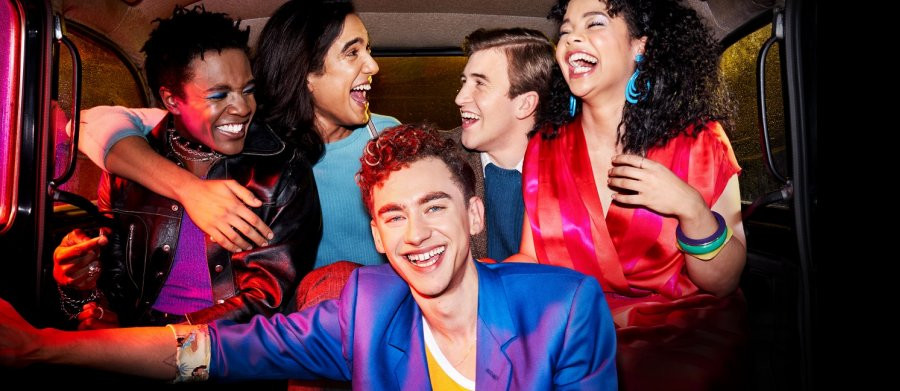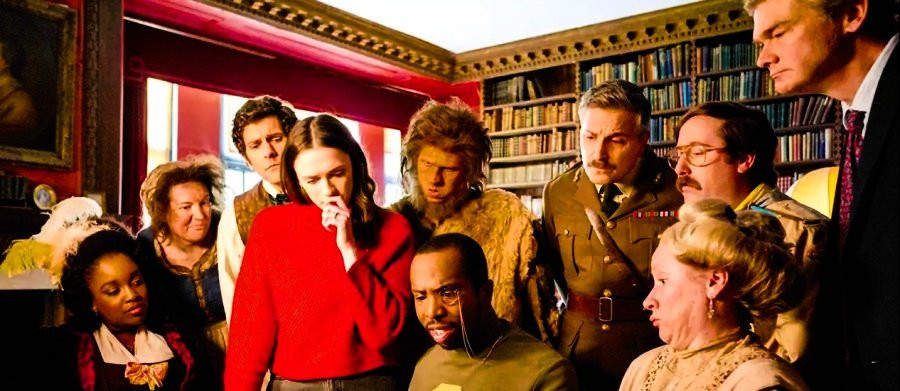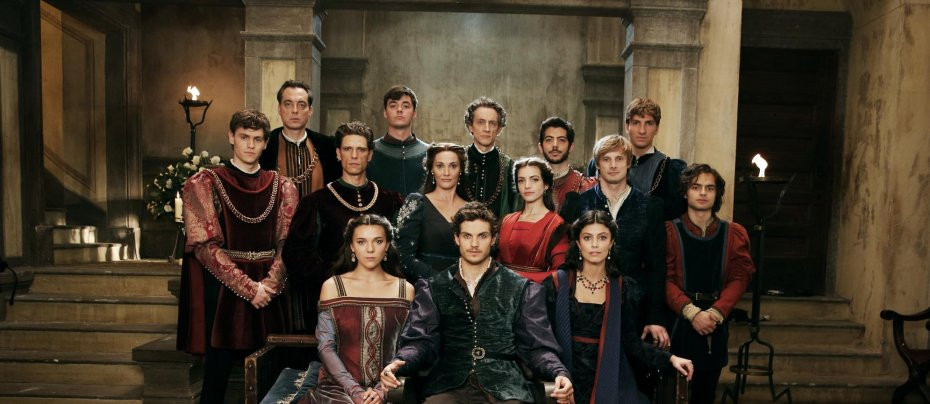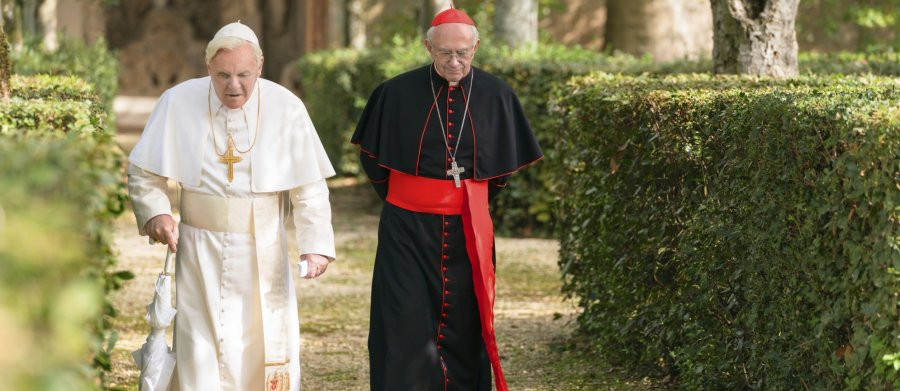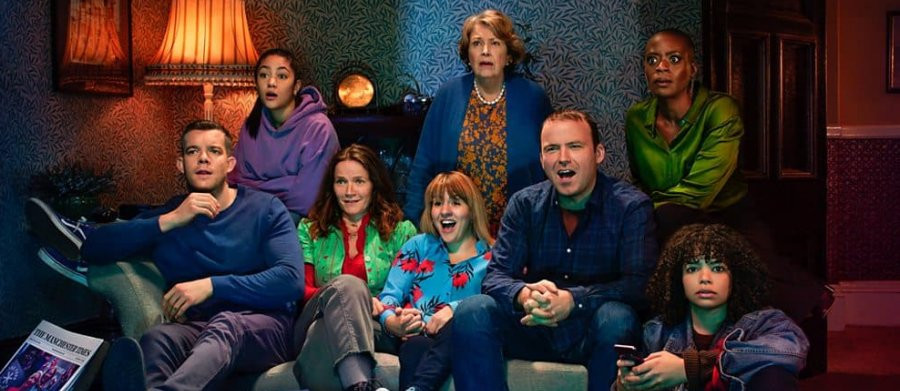
Years and Years
2019 - United KingdomYears and Years review by Dan Tessier
In 2004, the UK was under a Labour government. George W. Bush was President of the United States. Both nations were at war with Iraq. SpaceShipOne made the first privately manned spaceflight. Mark Zuckerberg founded Facebook. Piers Morgan was kicked off the Daily Mirror for publishing faked photographs of abuse in an Iraqi prison. Jeffrey John became the first openly gay cleric nominated to become a C of E bishop. A Fathers 4 Justice campaigner broke into Buckingham Palace dressed as Batman. Just before the year was out, a tsunami devastated south-east Asia. Top of the Pops was still going, just. There were no iPhones, no iPlayer, and the average man on the street had never heard of Iron Man.
It would have been hard, in 2004, to predict the world of 2019. We've been almost a decade under a Conservative government, Boris Johnson has just been made PM, Donald Trump is nearing the end of his first term as POTUS, and fighting in the Middle East has been going on so long that the news barely reports on it anymore. Facebook owns the information of almost a third of world's population, gay marriage is legal in both the UK and US, worldwide temperatures are at record levels and, somehow, Piers Morgan is still on television. In a world of fake news, misinformation, anti-expert rhetoric, the rise of the far right and a renewed threat from Russia, Russell T. Davies has taken on the daunting task of predicting the next fifteen years.
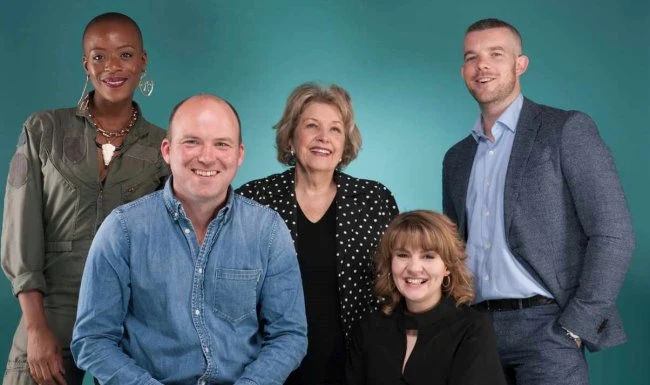
Years and Years is a six-part drama, co-produced by the BBC and HBO, the latest high profile drama written by Davies. While a six-part serial is a fairly short run in the current world of thirteen-episode Netflix binges, it remains a hugely ambitious project. Charting world events from the end of (a somewhat fictionalised) 2019, the drama makes sporadic leaps forward, with successive years' events covered by way of news bulletins before settling on a particular year for that episode's main storyline, all the way up to 2034. In spite of the far-reaching events, Davies keeps the drama centred on a single family, maintaining a personal connection throughout.
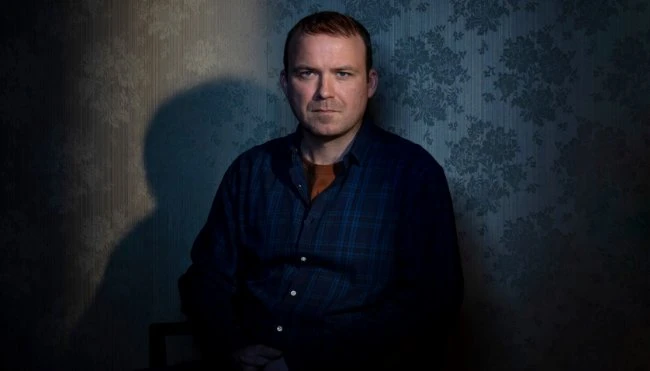
Davies has a great talent for creating compelling characters, and the Lyons family are no exception. At the core of the drama are four siblings, played by some of the most highly regarded actors working on television today. The eldest is Stephen, played by Rory Kinnear (Black Mirror, Count Arthur Strong, and the most recent films of the James Bond franchise), followed by Edith, played by Jessica Hynes (Spaced, Doctor Who, There She Goes), and then Daniel, played by Russell Tovey (Being Human, The History Boys, Him & Her). The youngest is Rosie, played by Ruth Madeley, a criminally little known actress (she doesn't even have a Wikipedia page, but she's in Don't Take My Baby, Cold Feet, Katy and most recently The Rook).
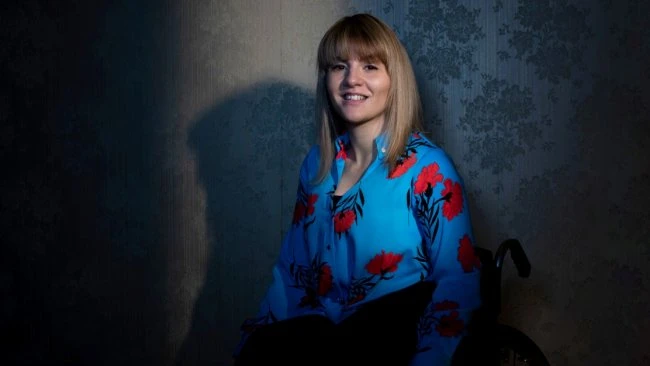
In spite of being siblings, and having a close and unshakeable bond, they are very different people, who have all reached very different places in their lives. Stephen is married to Celeste (T'Nia Miller – Doctor Who, Hatton Garden), with two mixed race daughters, Bethany (Lydia West) and Ruby (Jade Alleyne). He's a financial advisor, she's an accountant, and they're living a very comfortable life in a 1.2-million-pound house. Daniel is also married, to Ralph (Dino Fetscher – Humans, Banana), and works in a rehousing initiative primarily for asylum seekers. Rosie is rather the opposite of Stephen, with two of her own mixed-race children by different fathers, both of whom have left, working in a school canteen and not far above the poverty line. The most unusual lifestyle belongs to Edith, who lives a precarious existence as a political activist, moving across the world, looking for trouble. Indeed, she doesn't even appear until the very end of the first episode, and even then, she's on the non-branded equivalent of Skype.
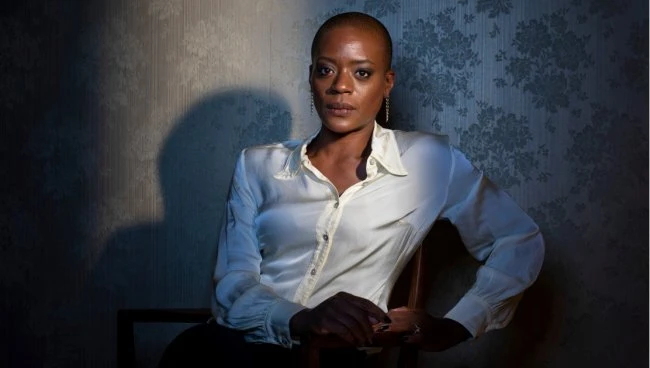
While the Lyons siblings live very separate lives, they maintain contact throughout the series both through their “family link” - a group phone chat via Señor, the series' fictitious version of Alexa or Google Home – or annual get-togethers at their grandmother's home. This huge but crumbling house is the setting for much of the story, belonging to the grand matriarch of the family, Muriel Deacon. Played by Anne Reid (a very established actress, perhaps best known for Coronation Street and dinnerladies but having worked on so much more), Muriel is old-fashioned but quick to adopt new technology when it makes life more convenient, and far sharper than her family give her credit. She has a particularly fractious relationship with Celeste, although over time, as the family goes through some serious ups and downs, they become very close.
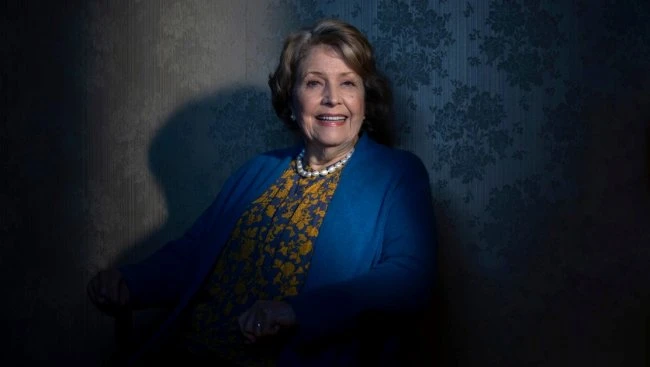
The Lyons are a far cry from the traditional nuclear family still commonly seen in television drama, reflecting the changing definitions of family in the 21st century. They are diverse in race, sexuality, financial class and physical type (indeed, the four siblings look nothing alike, but this is a common element we have to overlook on television). Unusually, the siblings' parents are nowhere to be seen; Muriel's daughter has died before the beginning of the series, while the father left for another woman many years ago and has very little to do with his children. (There is a half-brother, but the otherwise close-knit siblings have virtually nothing to do with him.) The events that shake the country, and indeed the world, are all viewed through the eyes of this one family, although its exact make-up changes over the years. Even through the tumult of future history, people still go to work, make money, lose money, raise families, love, cheat and move on.
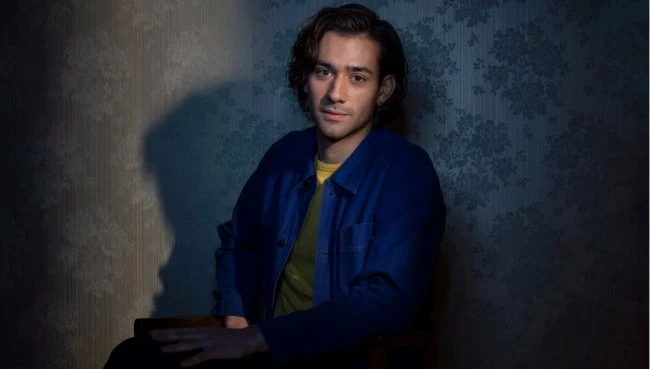
The other major player in the Lyons family affairs is Viktor Goraya (Maxim Baldry – Hollyoaks, Rome), a beautiful Ukrainian man who has fled his country following the Russian Federation's increasing takeover of its affairs. The repressive Russian government has brought their homophobic policies with them, leading to Viktor's family turning him into the police and forcing him to flee to Britain once he was able to escape. As such, at the beginning of the series, he's living in a prefab housing unit overseen by Daniel, who breaks every rule and falls in love with him.
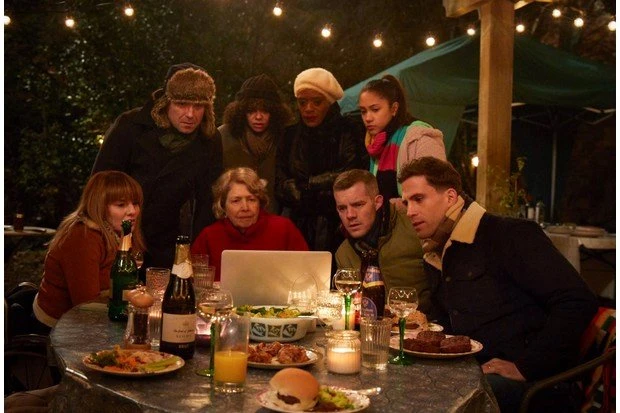
The cascade of historical events is kicked off at the end of the first episode, when in 2024 Trump, in a horrifyingly plausible move, decides to bigly bomb an artificial island built by the Chinese. Edith witnesses the event from the coast of Vietnam, getting a massive dose of radiation poisoning in the process. The remaining Lyons siblings are at the family home for Muriel's 92nd birthday when the news interrupts everything. It seems like the beginning of the end of the world. Daniel leaves his husband there at the party, running to his workplace to meet Viktor. (There are some pretty steamy gay sex scenes as well, but then, this is from the man who gave us Queer as Folk.)
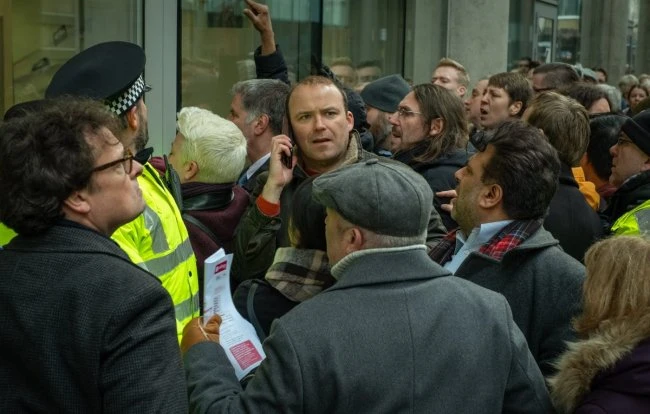
The next episode picks up the following year, and the world is still going, but Daniel's marriage has collapsed and he's now seeing Viktor. Sanctions against the US, however, have had a major knock-on effect on the UK economy. Eventually, an American bank goes under, precipitating an even bigger financial crash than the one in 2008. This has major repercussions for Stephen and Celeste, which leads to severe strain on their relationship.
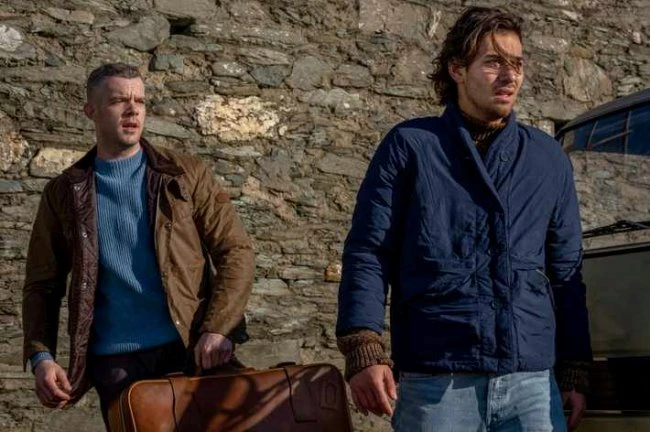
Viktor and Daniel's story is a major thread running through the series, with Viktor suffering from the rising power of the far right throughout Europe and the US. Thrown out of the UK when he breaches his terms of asylum by getting a low-paid job, he flees the Ukraine once again and travels across Europe trying to find somewhere safe while Daniel fights for his right to return to Britain. However, the continued rise of extremist parties forces him from country to country, and eventually a far-left party takes over in Spain, proving just as intolerant of foreign nationals as their opposition. Episode four gives most of its time to Daniel and Viktor, as Daniel tries to smuggle Viktor back into the UK. They suffer abuse at the hands of the criminals they need to turn to for help, Daniel having his passport stolen, forcing them both to try to make it over the Channel in a terrifyingly overcrowded boat full of desperate refugees. In a political climate that is continuing to demonise immigrants in general and refugees in particular, this is a tremendously powerful piece of television. The fear and desperation that leads to people risking their lives is palpable, and I'll be shocked if this series hasn't changed a few minds on the subject.
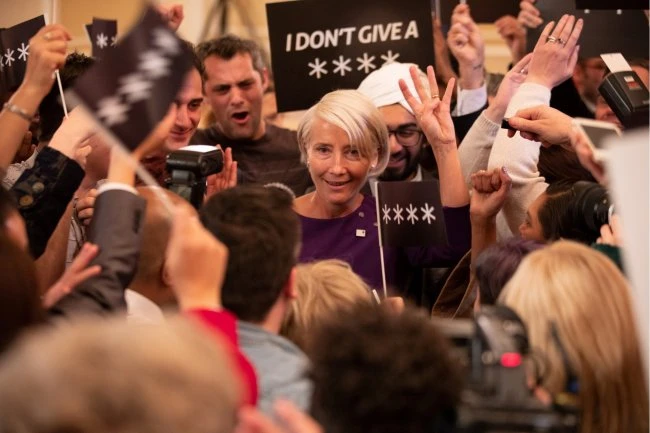
The big star of the series, however, is multi-award winning actress Dame Emma Thompson, playing Vivienne Rook. Thompson puts on a broad Northern accent as a character who very much plays at being one of the people, but is in fact a very wealthy businesswoman. One of the earliest events in the series, in 2019, sees her on a panel show, saying she doesn't “give a f**k” about Palestine. This one gaff pushes her to notoriety. While the everyday lives of the Lyons are played out, a parallel storyline follows the rise of Rook, as she founds the Four Star Party and gradually consolidates her position of power. Rook is a non-too-subtle dig at the sort of populist politicians who are becoming more and more successful across the world. Essentially a Northern English female version of Trump, she spouts meaningless rhetoric and makes showy displays for her public, with her popularity growing while she never manages to come up with a coherent policy. Only Daniel seems truly horrified by her; Rosie even votes for her. Some of her ideas, while outlandish, are the sorts of things it's easy to imagine being suggested by the more extreme politicians. She even suggests mandatory IQ tests to decide who can vote (perhaps not a bad idea at all, although you'd think it would rather dent her voting base). After a hung parliament gives her a foothold, she abuses the system and manages to become elected as Prime Minister.
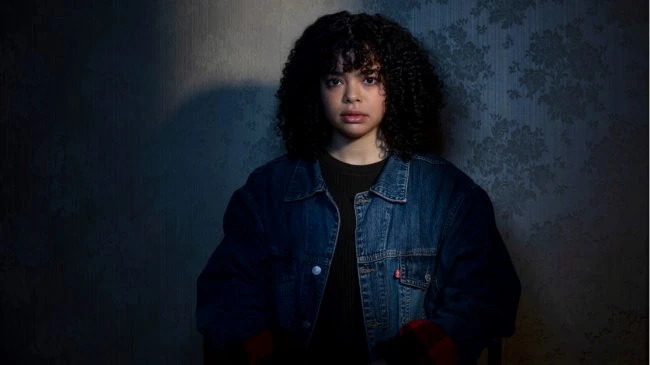
It is, of course, impossible to predict the future, but the events of the series, and the astonishing technologies that appear, are all disturbingly believable. Many developments aren't even alluded to in dialogue, but eagle-eyed viewers will spot some surprising things on the news feeds. Some are just futuristic colour, like Mo Farah appearing on banknotes, or the extinction of the banana. Various meat substitutes are developed, from fungus to genetically engineered animal cell cultures. Some technologies even exist already – alkaline hydrolysis, a method of disposing of human bodies that's less energy-costly than cremation, has been around since 2005. Other developments have wider implications. Ruth Madeley has spina bifida, and this is an element of her character Rosie, although not her defining characteristic. It becomes possible to cure such disorders in the womb, which leads Rosie to fear whether she would be “corrected” had she been born later. Stephen and Celeste's elder daughter Bethany identifies as transhuman, an existing but small movement dedicated to improving the human form with technology. Bethany is gradually upgraded, becoming connected with the internet, and her end goal is to transcend her body altogether. (Lydia West is one to watch, the young actress giving an exceptionally good performance.)
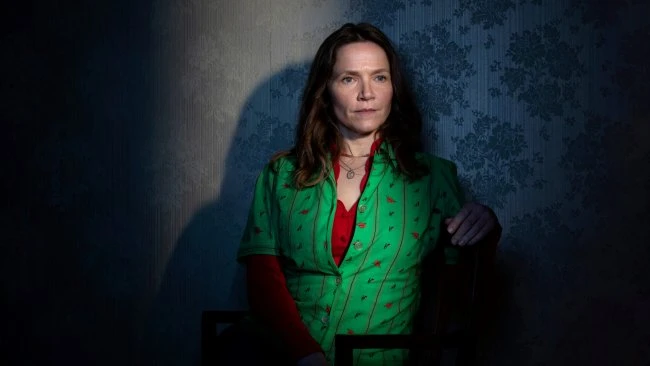
Although the technological side of things is explored (and things get very sci-fi in the last moments of the series when we hit 2034), Years and Years is mostly concerned with the social side of futurism. While we hear bits and pieces of worldwide events – Greece undergoes Grexit, Hungary goes bankrupt and the UN removes its offices from the US after increasing removal of individual freedoms, such as recriminalising gay marriage and banning the speaking of Spanish in public. The focus, though, is on Britain, particularly Rook's premiership. Some of her policies (heavily implied to be the work of someone more powerful, but this is underexplored) actually sound quite decent. For example, the “two bedroom law” means that anyone with a spare room must allow a homeless person into their home. However, even this isn't as philanthropic as it at first seems. The law only applies to the right sort of homeless person, people who have lost their homes due to the increasingly extreme weather events, or the dirty bombing of Leeds in a terrorist attack. Those living on the streets, on the other hand, start to disappear.

In a truly horrifying prediction, Rook's government sets up “Erstwhile sites,” large areas given over to containing refugees and other undesirables. These are essentially concentration camps, something illustrated in a chilling scene in which Rook gives a speech to a closed group of supporters where she highlights that it was the British who invented such camps, for use in the Boer War. It's genuinely frightening that, between filming and broadcast, discussions of the definition and merit of concentration camps would actually start to happen.
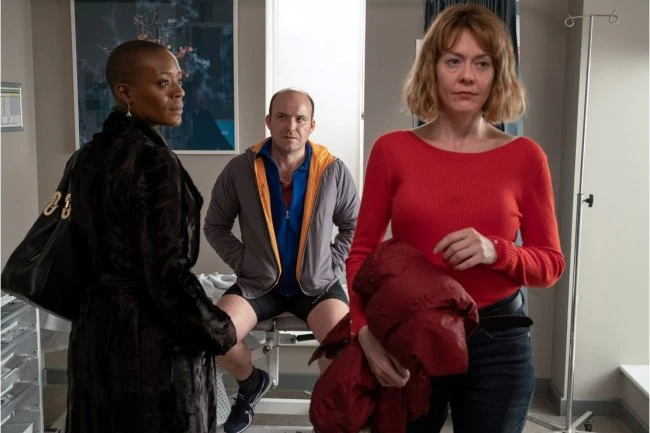
Further curtailment of freedoms comes when certain high crime areas are designated “Red Zones” and sealed off, while access to high income areas like Knightsbridge becomes means-tested. The Red Zones are a way of keeping poorer families, including Rosie and her kids, in squalor and away from the “better” sort of people. When questioned about the conditions inside the Red Zones and the true nature of the Erstwhiles, Rook writes it all off as “fake news.” She eventually shuts down the BBC and uses only her own sanctioned channels. It's chillingly familiar.
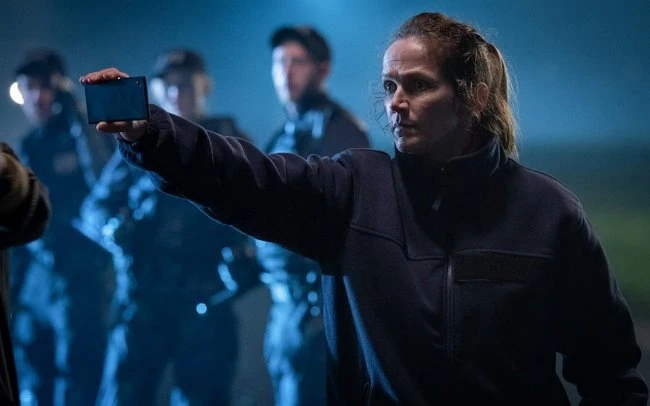
An uprising is inevitable, and the series ends on a triumphant note, albeit a rather bittersweet one. The final episode swerves into action thriller territory, but the focus remains on the relationships between the characters. Having an activist in the family helps, of course, although Edith makes it clear that other groups were rising up around the country and that things would have changed without her. It's a powerfully positive message from a series that's often harrowing to watch. Davies concludes the series with a reminder that ordinary people can make a difference and hold those in power accountable for their crimes.
Sadly, in spite of an excellent cast and an enthralling script, Years and Years has been only a qualified success, gaining positive reviews from critics but managing only 2.3 million viewers overnight for its first episode and dropping to about half of this by its conclusion. (The consolidated figures, including iPlayer, are approximately double this.) This is a shame, since it's a truly great series and a potent warning on what could happen over the coming years if we let it. Davies has stated he has no plans for a follow-up in any case, although he does admit he might be tempted to revisit the concept in 2034. Who knows where we'll be then?
Seen this show? How do you rate it?
Seen this show? How do you rate it?
Published on July 24th, 2019. Written by Daniel Tessier 2019 for Television Heaven.


